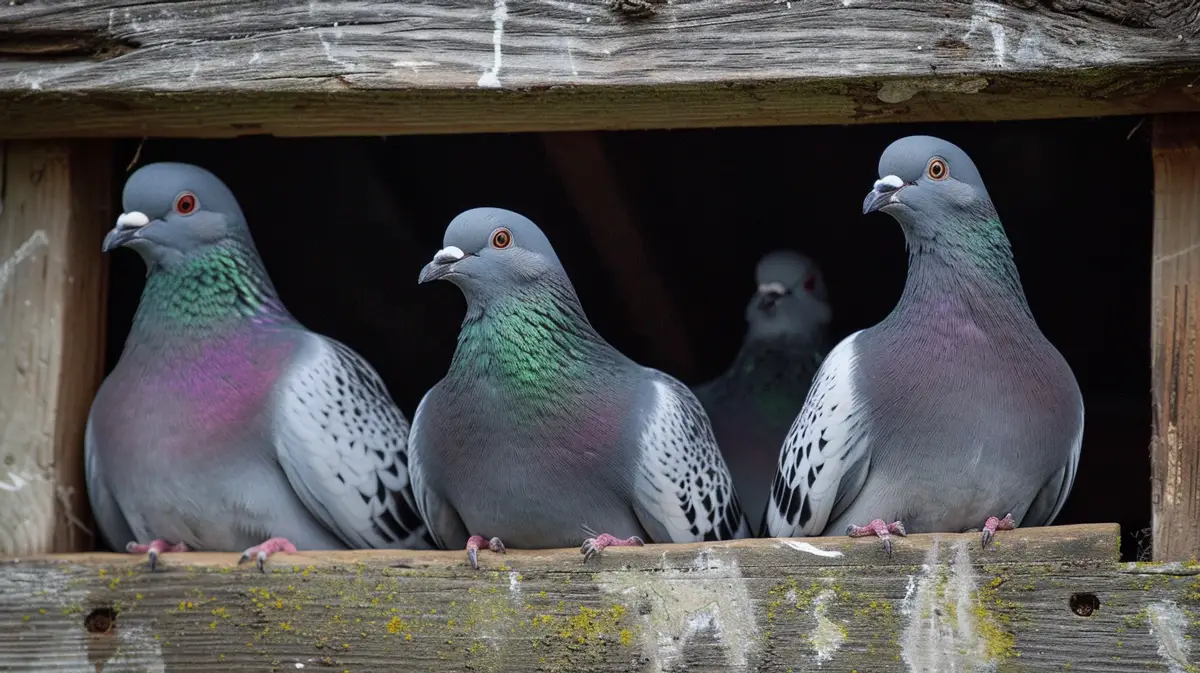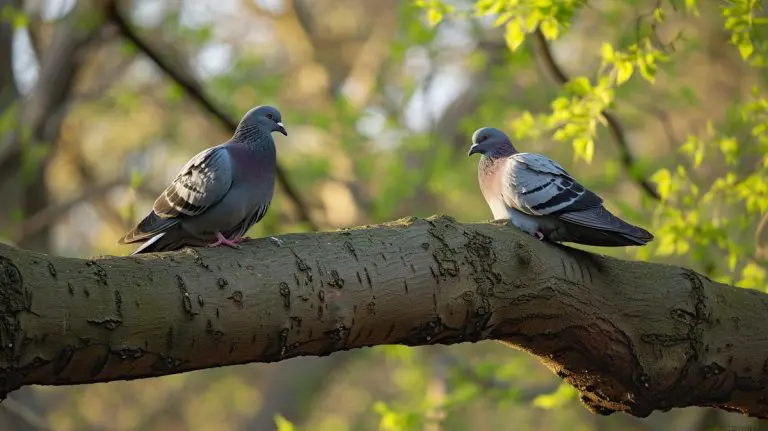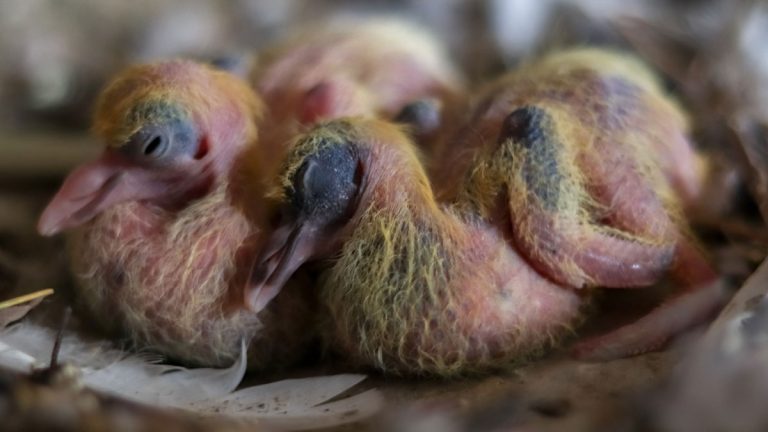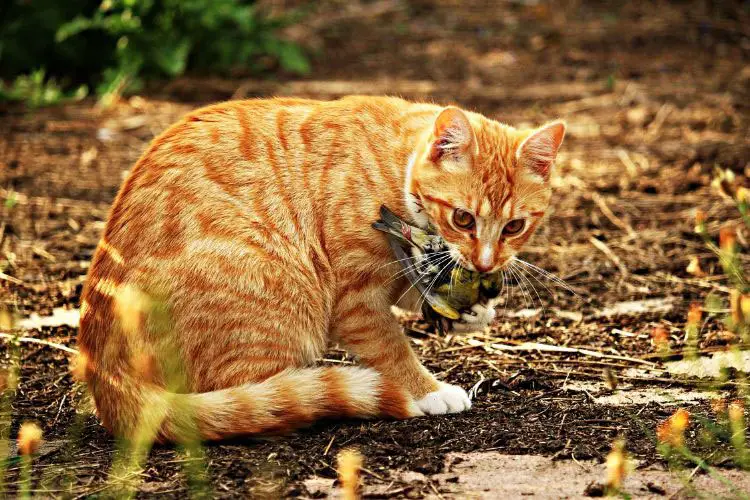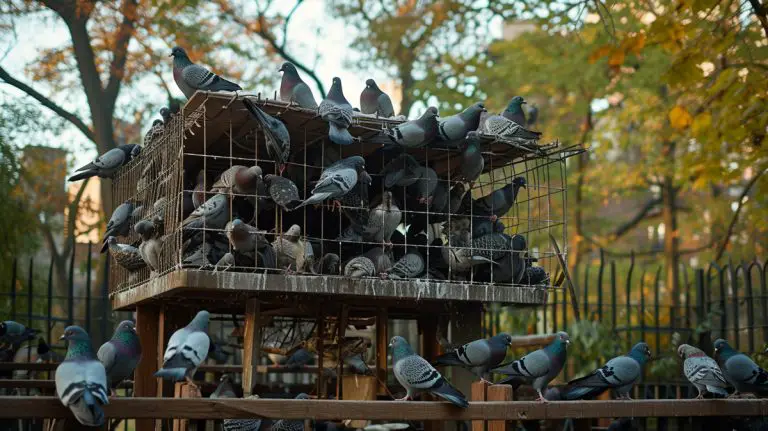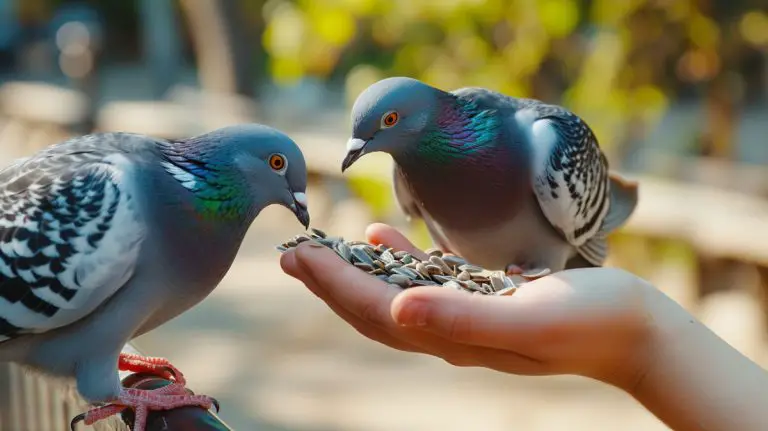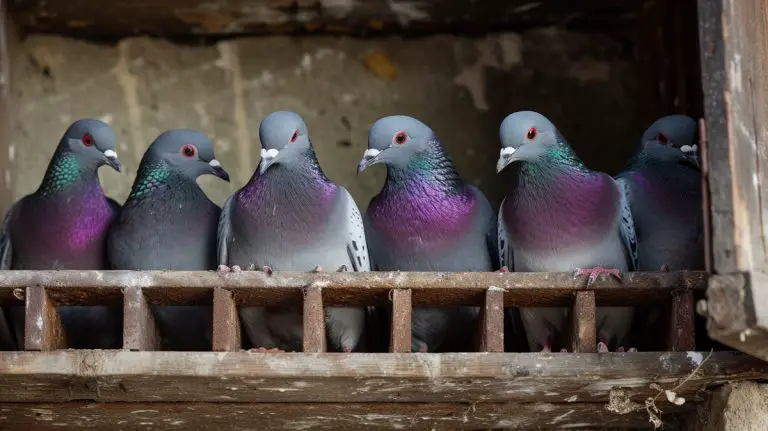Pigeon Hydration Tips: How to Keep Your Birds Healthy
Hey there, fellow pigeon enthusiasts! If you’re as passionate about these feathered friends as I am, then you know how important it is to ensure their well-being. One crucial aspect of pigeon care is hydration, and today, I’ll be sharing some valuable tips on how to keep your pigeons properly hydrated.
As pigeons rely heavily on water for their overall health and performance, it’s essential to provide them with a clean and accessible water source at all times. But it’s not just about having water available; there are a few tricks to ensure your pigeons are getting enough hydration. So, grab a seat and get ready to dive into the world of pigeon hydration!
Importance of Hydration for Pigeons
As an experienced pigeon enthusiast, I understand the importance of proper hydration for these magnificent birds. Hydration plays a vital role in maintaining their overall health and well-being. In this section, I’ll delve into why hydration is so crucial for pigeons.
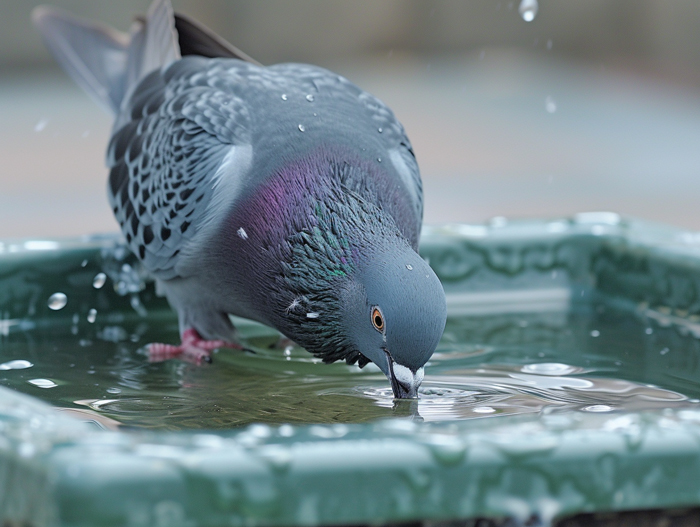
1. Regulation of Body Temperature: Pigeons, like many other animals, rely on water to regulate their body temperature. Through the process of panting and evaporative cooling, pigeons are able to cool down when the weather gets hot. Without adequate hydration, pigeons may struggle to maintain a normal body temperature, leading to heat stress or even heat stroke.
2. Efficient Digestion: Adequate hydration is essential for the proper functioning of a pigeon’s digestive system. Water plays a key role in breaking down food and absorbing nutrients. When pigeons are dehydrated, their digestion can be compromised, leading to poor nutrient absorption and potential health issues.
3. Optimal Organ Function: Water is a fundamental component for the normal functioning of organs in pigeons. It helps to transport nutrients and oxygen to cells, as well as flush out waste products. Without sufficient water intake, pigeons may experience organ dysfunction and an increased risk of illness.
4. Feather Health: Hydration is directly linked to the health of a pigeon’s feathers. Feathers provide insulation, protection, and aid in flight. Proper hydration helps to keep feathers shiny, strong, and in good condition. Without an adequate water supply, feathers may become brittle and prone to damage, affecting a pigeon’s ability to fly and stay warm.
5. Overall Hygiene: Pigeons rely on water for grooming and maintaining proper hygiene. It’s essential for them to have access to clean water sources to bathe and cleanse themselves.
A lack of water can result in poor feather cleanliness, leading to potential health issues such as feather mites or infections.
In light of these essential reasons, it’s clear that adequate hydration is crucial for the health and well-being of pigeons. As caring pigeon owners, it is our responsibility to provide them with a clean and accessible water source and ensure they have regular access to it.
Understanding the Water Needs of Pigeons
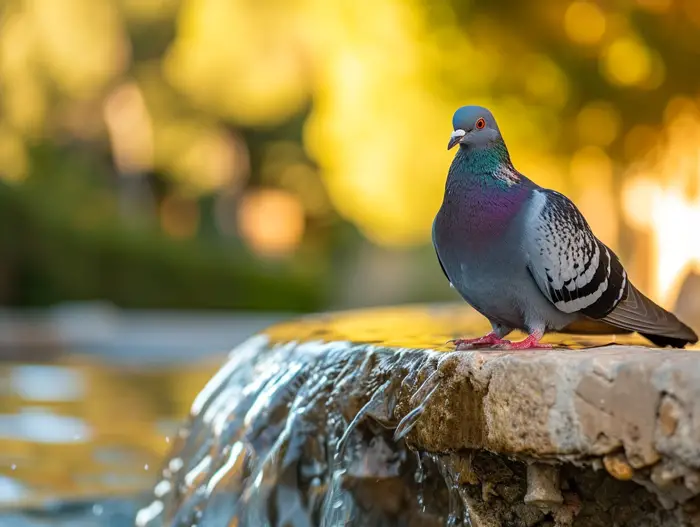
As a responsible pigeon owner, it’s important to understand the water needs of these birds. Proper hydration is crucial for their overall health and well-being. Here’s why:
Regulating Body Temperature
Pigeons, like any other animal, rely on water to regulate their body temperature. Water helps in dissipating the heat from their bodies, particularly during hot weather. Inadequate hydration can lead to overheating and heat stress, which can be detrimental to their health.
Aiding in Digestion
Water plays a key role in the digestion process of pigeons. It helps break down food, making it easier for their bodies to absorb essential nutrients. Without enough water, their digestive system may not function properly, leading to digestive issues and poor nutrient absorption.
Promoting Optimal Organ Function
Proper hydration is vital for maintaining the optimal function of pigeons’ organs. Water helps in transporting nutrients and oxygen throughout their bodies, allowing their organs to work efficiently. Without enough water, their organ function may be compromised, leading to various health problems.
Maintaining Feather Health
Water is essential for maintaining the health of pigeons’ feathers. It helps keep their plumage clean, moisturized, and flexible. Adequate hydration prevents their feathers from becoming dry, brittle, and prone to breakage. This, in turn, ensures their ability to fly, stay warm, and protect themselves from the elements.
Ensuring Overall Hygiene
Clean water is not only necessary for hydration but also for maintaining proper hygiene. Providing fresh and accessible water sources helps prevent the spread of diseases and infections among pigeons. It also encourages them to drink more, ensuring they stay well-hydrated and healthy.
Understanding the water needs of pigeons is crucial for their well-being. Hydration helps regulate their body temperature, aids in digestion, promotes optimal organ function, maintains feather health, and ensures overall hygiene. As pigeon owners, we have a responsibility to provide clean and accessible water sources to keep our feathered friends healthy and happy.
Providing a Clean and Accessible Water Source
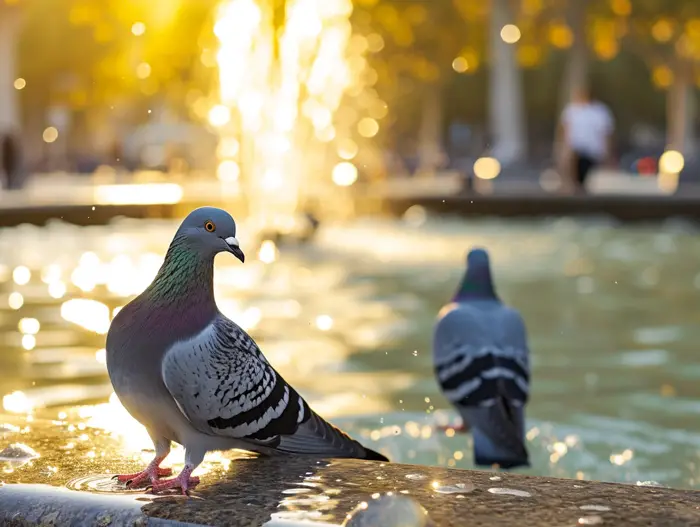
One of the essential aspects of taking care of pigeons is ensuring they have a clean and accessible water source. Here are some tips to help you provide the best hydration for your feathered friends:
1. Fresh Water Daily: Pigeons need access to clean, fresh water every day. I make sure to replace their water with a fresh batch every morning. This helps prevent the growth of bacteria and keeps the water clean and safe for them to drink.
2. Clean Water Containers: It’s important to regularly clean the water containers to maintain good hygiene. I wash the containers with mild soap and water and rinse them thoroughly before refilling them. This practice helps prevent the accumulation of dirt and debris, ensuring the water stays fresh and uncontaminated.
3. Multiple Water Stations: I provide multiple water stations in different areas of the pigeon’s living space. This allows them easy access to water wherever they are, reducing the chances of dehydration. Pigeons can sometimes be territorial, so having more than one water source helps prevent conflicts and ensures that every pigeon has equal access to hydration.
4. Shallow Water Source: Pigeons prefer shallow water sources instead of deep containers. I use low and wide dishes that allow them to dip their beaks and take sips comfortably. This design also helps prevent accidents or drowning.
5. Avoid Chemical Contaminants: I avoid using any chemicals or substances in or near the pigeons’ water containers. Even small amounts of chemicals can be harmful to their health. It’s also important to keep the water away from potential contaminants, such as cleaning agents or pesticides.
6. Hot Weather Considerations: During hot weather, I make sure to place the water containers in shaded areas to keep the water cool and refreshing for the pigeons. Additionally, I occasionally add ice cubes to the water to help regulate the temperature and provide a cool drinking option for them.
Remember, providing a clean and accessible water source is essential for the health and well-being of your pigeons. By following these tips, you can ensure that your pigeons stay hydrated and happy, promoting their overall vitality and longevity.
Tips for Encouraging Pigeons to Drink More Water
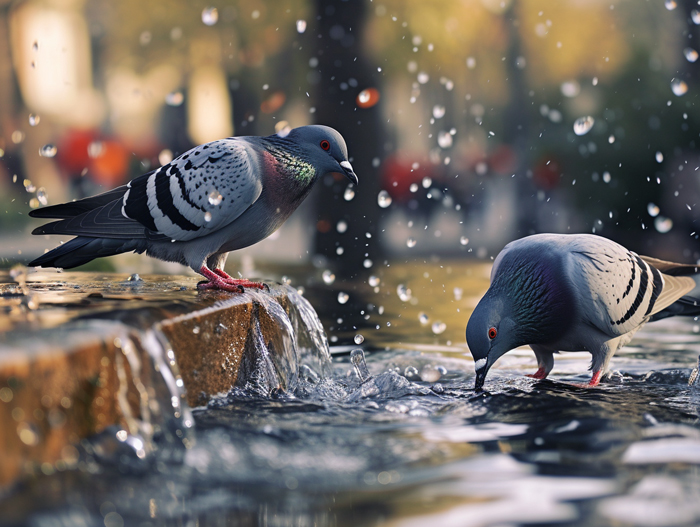
As a pigeon owner, I understand the importance of keeping my feathered friends well-hydrated. But sometimes, getting them to drink enough water can be a challenge. That’s why I’ve compiled some helpful tips to encourage pigeons to drink more water. Check them out below:
- Fresh Water Daily: It’s important to provide fresh, clean water to your pigeons every day. Just like us, pigeons prefer their water to be fresh and free from any impurities. So, make it a habit to change their water daily.
- Clean Water Containers: Regularly cleaning the water containers is crucial to ensure optimal hygiene. Pigeons are sensitive to bacteria and mold, which can grow in dirty water containers. So, make sure to clean and sanitize their water containers regularly.
- Multiple Water Stations: Having multiple water stations around the pigeon loft can encourage them to drink more. Pigeons, like other birds, are territorial by nature. By providing multiple water sources, you ensure that each pigeon has easy access to water without having to compete with others.
- Shallow Water Sources: Pigeons are more likely to drink from shallow water sources. A deep water container may intimidate them or make them feel unsafe. So, opt for shallow dishes or trays that allow them to comfortably dip their beaks into the water.
- Avoid Chemical Contaminants: Pigeons are very sensitive to chemicals, so it’s important to avoid using chemical cleaners or disinfectants near their water containers. Even a small dosage of chemicals can make the water unsafe for them to drink. Stick to mild, bird-safe cleaning solutions.
- Consider Hot Weather Conditions: During hot weather, pigeons need additional hydration to stay cool and prevent dehydration. Place their water containers in shaded areas and consider using misters or sprinklers to create a cooling effect. This will entice them to drink more water to stay refreshed.
By following these simple tips, you can help ensure that your pigeons stay properly hydrated and healthy. Remember, providing clean, accessible water and creating an inviting drinking environment are key to encouraging pigeons to drink more water.
Signs of Dehydration in Pigeons
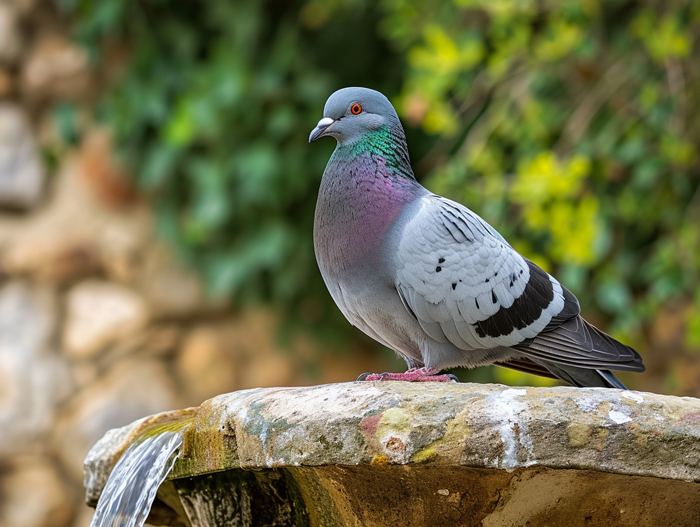
Pigeons, like any other living creature, require proper hydration to stay healthy. As a pigeon owner, it’s crucial to be aware of the signs of dehydration in order to address the issue promptly and prevent any potential health risks for your feathered friends. Here are some key indicators to look out for:
- Dull or Sunken Eyes: Dehydration can cause a pigeon’s eyes to appear dull or sunken. Keep an eye on your pigeons’ eyes to ensure they are bright and vibrant.
- Dry or Flaky Skin: When pigeons are dehydrated, their skin may become dry and flaky. Proper hydration will help maintain their skin’s health and prevent any discomfort.
- Weight Loss: Dehydration can lead to weight loss in pigeons. If you notice a sudden drop in your pigeon’s weight, it could be a sign of inadequate hydration.
- Reduced Droppings: Pigeons normally have regular bowel movements. However, dehydration can lead to decreased frequency or even the absence of droppings. Monitor your pigeon’s droppings for any changes.
- Lack of Energy: Dehydration can cause pigeons to become lethargic and show a lack of energy. If you notice your pigeons being unusually inactive or not participating in their usual activities, it may be a sign of dehydration.
- Pale or Discolored Beak: A dehydrated pigeon may have a pale or discolored beak. A healthy pigeon should have a vibrant, pinkish beak.
Remember, prevention is always better than cure when it comes to dehydration in pigeons. Ensure that your pigeons have access to fresh and clean water at all times. Regularly clean their water containers to avoid the growth of bacteria or algae. Consider having multiple water stations to encourage more drinking and place them in shaded areas during hot weather conditions.
By staying vigilant and addressing dehydration promptly, you can ensure that your pigeons remain properly hydrated and healthy.
Conclusion
Ensuring proper hydration for pigeons is essential for their overall health and well-being. By following the tips provided in this article, you can encourage pigeons to drink more water and prevent dehydration.
Remember to provide fresh water daily and regularly clean the water containers to maintain cleanliness and freshness. Having multiple water stations throughout their habitat will make it easier for pigeons to access water whenever they need it.
Using shallow water sources is also recommended, as it allows pigeons to comfortably drink without fear of drowning. Additionally, it’s important to avoid chemical contaminants that can be harmful to pigeons’ health.
Recognizing the signs of dehydration, such as dull or sunken eyes, dry or flaky skin, weight loss, reduced droppings, lack of energy, and pale or discolored beaks, is crucial. Prompt action should be taken to address dehydration and ensure pigeons remain properly hydrated.
By implementing these tips and being proactive in maintaining their hydration levels, you can help keep your pigeons healthy and thriving. Remember, prevention is key when it comes to hydration, so make it a priority to provide clean and accessible water sources for your pigeons at all times.
